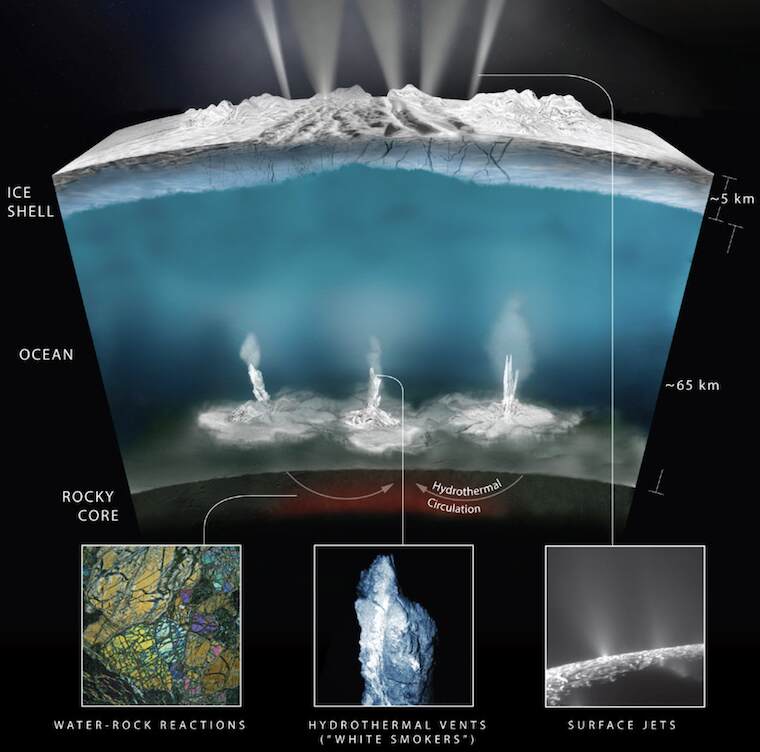THE LATEST
Supercomputer models contribute to insights into the potential for life in ocean worlds

A recent study by researchers at UC Santa Cruz investigates the potential for life to exist on "ocean worlds" within our solar system. Ocean worlds are celestial bodies with liquid oceans, hidden beneath icy shells or rocky interiors. The study used high-performance computer models to explore the role of hydrothermal vents in creating habitable conditions on these planets and moons. By adjusting various factors, such as gravity and heat, the researchers found that hydrothermal vents could potentially exist on ocean worlds like Jupiter's moon Europa, increasing the chances of supporting life.
The study, led by Professor Andrew Fisher, focused on supercomputer simulations based on Earth's seafloor ecosystems, specifically looking at the hydrothermal circulation system. The researchers discovered that low-temperature, life-supporting hydrothermal systems could have been sustained on ocean worlds beyond Earth over timescales comparable to those required for life to take hold on our planet.
One notable finding from the study is the potential for long-term fluid circulation systems with low to moderate temperatures on ocean worlds with low gravity, such as Saturn's moon, Enceladus. This challenges previous assumptions and offers a plausible explanation for the existence of stable hydrothermal environments on smaller ocean worlds throughout the solar system's lifespan.
However, it is important to note that direct observations of active hydrothermal systems on ocean worlds pose significant technical challenges due to their distance from Earth. As a result, researchers must rely on available data and insights gained from detailed studies of similar Earth systems.
The diverse team of authors, including researchers from various institutions, emphasizes the need for continued research and the contribution of various perspectives to deepen our understanding of ocean worlds and their potential for harboring life.
As we eagerly await the launch of the Europa Clipper spacecraft later this fall, observations from satellite missions will play a crucial role in uncovering the true nature of these mysterious ocean worlds. The authors of the study are hopeful that the mission will provide valuable insights into the conditions present or possible on Europa, facilitating further exploration of these intriguing celestial bodies.
